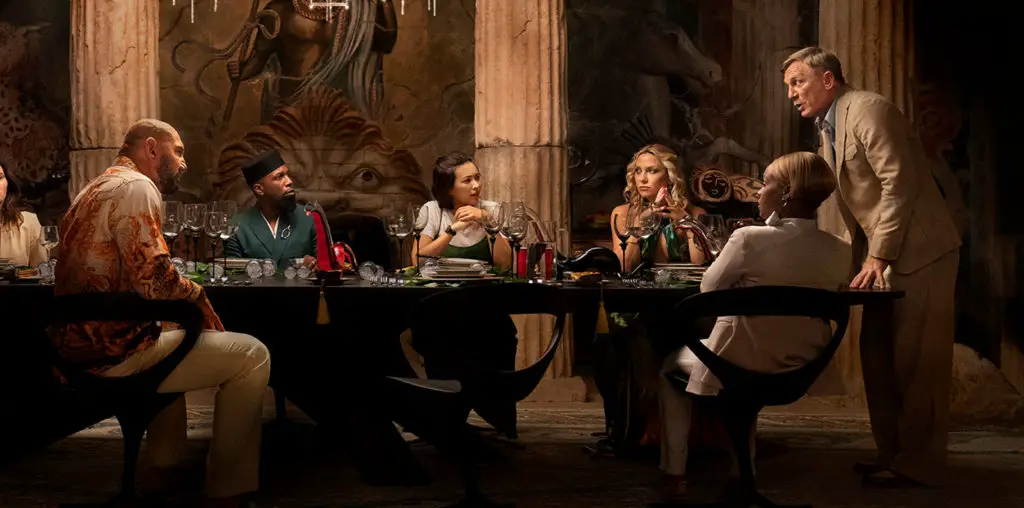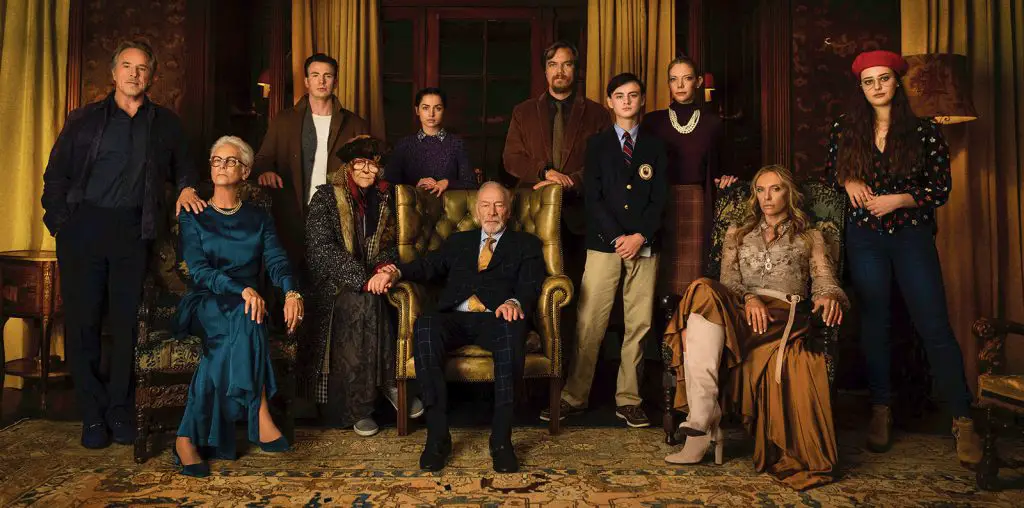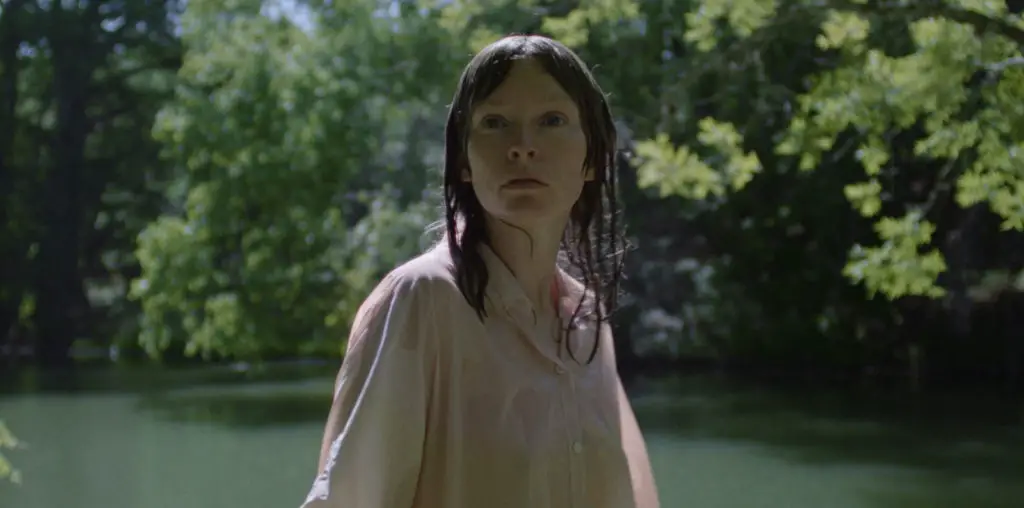
NOW IN THEATERS! I’ve said it before, and I’ll say it again: leave it to the French to show the rest of the cinematic world how it’s done. With no hint of pretentiousness, overt moralizing, needless stylizing, sentimentality, or stereotyping, filmmaker Sébastien Marnier crafts a deliciously twisty, deeply involving mystery-thriller about nothing less but The Origin of Evil itself. To make matters worse, Marnier and his terrific ensemble cast make it seem utterly effortless. Darkly hysterical, shrewd, and edge-of-your-seat suspenseful, The Origin of Evil is one of this (admittedly lackluster) year’s best films so far.
Revealing the film’s plot would spoil its many well-earned surprises, so I’ll attempt to summarize it as laconically as I can. An aging, antisemitic, extremely wealthy playboy is on the cusp of death. He’s surrounded by scheming ladies: his daughter, his wife, his granddaughter, his maid. They all seem to await his death with bated breath. One day, a middle-aged woman arrives at his impressive mansion by the sea, claiming to be the patriarch’s long-lost daughter. Shocking revelations ensue.
Marnier utilizes stark contrasts: the film is as cold (its monochrome palette) as it is sensual (its deeply erotic innuendos); as bitingly funny (its skewing of the upper class) as it is sad and enervating (its palpable claustrophobia). There are no “good people” in Marnier’s world. The characters are trapped within their own schemes and lamentable “ambitions,” blissfully unaware of basic things like humanity – and yet, they’re paradoxically eminently watchable, perhaps because we all, shamefully, see a part of ourselves in these people.

“…reminds us of human evil, how easily it can grow and spread…”
As psychologically probing as it all may be, The Origin of Evil is, first and foremost, a supremely entertaining thriller that will keep you guessing. Marnier does away with embellishments, except for two: he makes great use of split-screen, wherein seeing multiple reactions simultaneously adds a great deal to the intrigue, and he switches aspect ratios during a crucial sequence towards the end of the film. Some of the plot’s mysteries may remain unanswered, and that’s okay because life is messy, and not all secrets must be revealed.
The cast is uniformly splendid: Doria Tillier was born to play the brittle, classy, traumatized George; Dominique Blanc steals scenes as the wry Louise; Suzanne Clément perhaps comes closest to portraying real human empathy as a crucial character– but it’s Jacques Weber as the multifaceted patriarch Serge and Laure Calamy – as our “can’t take your eyes off her” lead – that will hold you most rapt and leave the most lasting impression.
Marnier reminds us of human evil, how easily it can grow and spread, and how, at our core, we’re all just Venus flytraps – a memorable albeit brief image in the film – waiting to prey upon our next clueless victim. He dissects class differences, our fear of death, our crazed obsession with money, oppressive men, and even powerful women (although, it can be argued that it’s actually a feminist ode to the latter).
Bringing to mind an eclectic slew of influences – from HBO’s Succession to The Talented Mr. Ripley, Knives Out, and the films by French auteur Claude Chabrol, the filmmaker also goes to the titular origin of it all, taking inspiration from Shakespeare’s King Lear. As a result, it’s a feast for the eye and for the mind, done in a nonchalant way that would make the most seasoned filmmakers jealous.

"…Marnier and his terrific ensemble cast make it seem utterly effortless"


